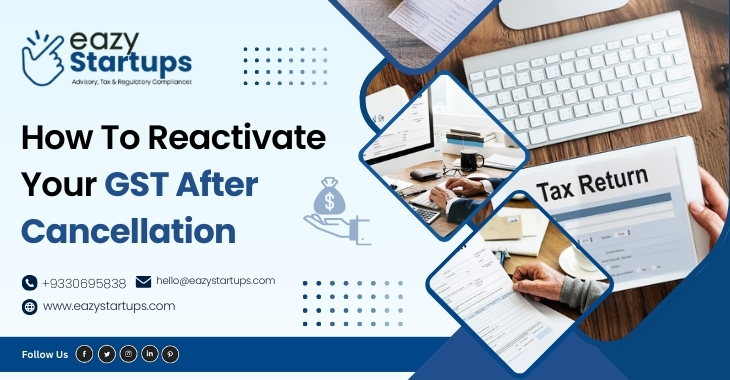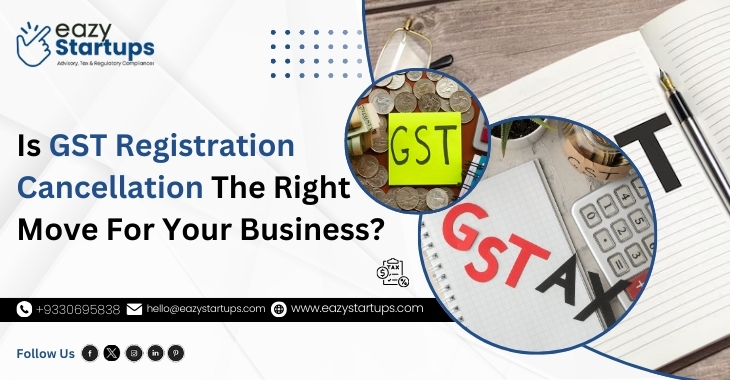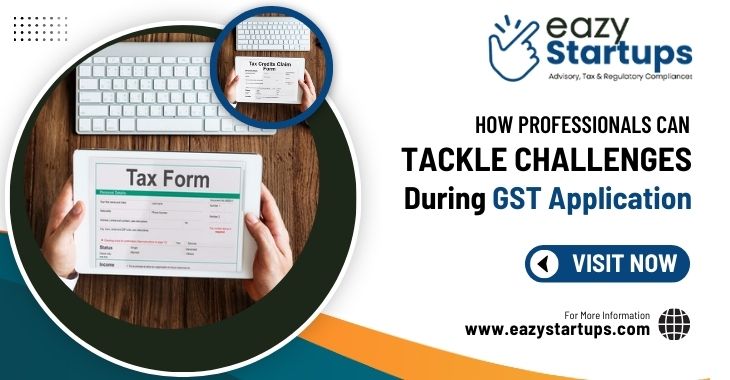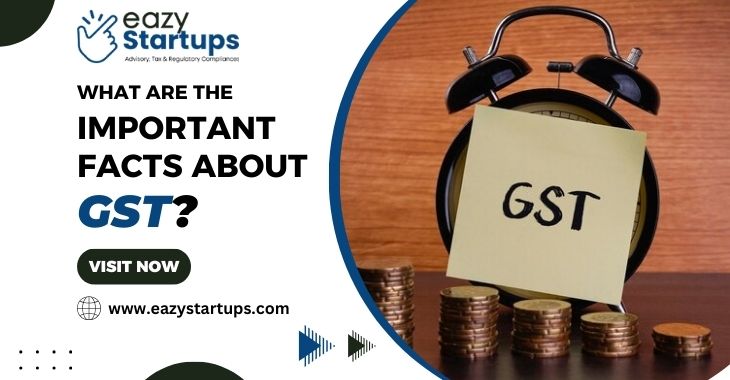A GST registration may be cancelled for several reasons, including non-compliance with GST regulations, voluntary cancellation, or failure to complete returns. However, you can reactivate your GST registration if your firm reopens or if you want to correct the cancellation. The procedure entails adhering to certain guidelines to guarantee compliance with GST legislation. We go over the essential steps and information you need to effectively revive your GST Registration Cancellation in this blog.
Let’s dive into the discussion:-
1. Being aware of GST Reactivation
2. Filing an Appeal for GST Reactivation
3. Clearing Outstanding GST Dues
4. Uploading Proper Documentation
5. Submitting the Revocation Application
6. Reactivating GST for Voluntarily Canceled Registrations
7. Avoiding Future Cancellation
Being aware of GST Reactivation:
GST reactivation is applicable when a previously cancelled GST registration needs to be reinstated. Usually, the GST portal is used to complete this procedure. You have the option to appeal or request reactivation if the tax authorities were the ones who made the cancellation.
For voluntary cancellations, you must justify why reactivation is needed.
Filing an Appeal for GST Reactivation:
You can appeal for restoration if the tax authorities cancel your GST registration. According to Section 30 of the GST Act, you must apply for revocation within 30 days of receiving the cancellation order.
Steps to File the Appeal:
Log in to the GST portal.
Go to Services > Registration > Application for Revocation of Cancellation.
Fill in the form, justify, and upload supporting documents.
Apply and await the authority’s response.
Clearing Outstanding GST Dues:
Before applying for reactivation, ensure that all pending GST returns and liabilities are cleared. Reactivation will not be considered if unpaid taxes, interest, or penalties exist.
What You Need to Do:
File all pending GST returns, including GSTR-3B and GSTR-1.
Pay any outstanding taxes or late fees.
Uploading Proper Documentation:
Providing the correct supporting documents is essential for a successful GST reactivation request. Missing or incorrect documents can lead to rejection or delays.
Key Documents Required
Proof of business activity (like invoices or agreements).
Payment receipts for any pending dues.
A valid explanation for why the cancellation occurred and why reactivation is necessary.
Submitting the Revocation Application:
Once the appeal is filed, the tax officer will review your application. If all documents and dues are in order, the GST registration will be reactivated.
Steps After Submission:
The officer may issue a notice for additional clarification or documents (Form GST REG-23).
You must respond within 7 days using Form GST REG-24.
Once approved, the cancellation order will be revoked, and your GSTIN will become active again.
Reactivating GST for Voluntarily Canceled Registrations:
If you cancel your GST registration voluntarily but need it reinstated, you cannot revoke it directly. Instead, you will have to apply for a fresh GST registration.
Steps to Follow:
Visit the GST portal and click on New Registration.
Provide all the required business details, documents, and tax information.
Apply and complete the verification process.
Avoiding Future Cancellation:
To ensure your GST registration remains active and avoid future cancellations, comply with GST rules and regulations:
File GST returns (GSTR-1, GSTR-3B, etc.) on time.
Pay all GST dues, including late fees and penalties, promptly.
Keep business documentation accurate and updated.
Respond to GST notices or queries without delay.
Conclusion
Reactivating a cancelled GST registration is a methodical procedure requiring prompt action, appropriate paperwork, and adherence to GST regulations. Successful reactivation depends on comprehending the procedure and resolving any lingering concerns, regardless of whether the cancellation was started voluntarily or by tax officials. Following the preceding steps, you can easily resume your business operations and recover your GST registration. A GST specialist can help guarantee accuracy and compliance if you’re having trouble with the reactivation procedure. To get help got your GST Registration Cancellation, contact Eazy Startups.











Recent Comments